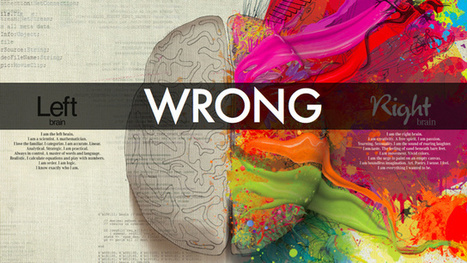'The latest findings from the real neuroscience of creativity suggest that the right brain/left brain distinction is not the right one when it comes to understanding how creativity is implemented in the brain.
Research and publish the best content.
Get Started for FREE
Sign up with Facebook Sign up with X
I don't have a Facebook or a X account
Already have an account: Login
Tech tools that assist all students to be independent learners & teachers to become better teachers
Curated by
Beth Dichter
 Your new post is loading... Your new post is loading...
 Your new post is loading... Your new post is loading...
|

David Collins's curator insight,
October 29, 2014 1:27 AM
An enlightening perspective on the decline of creativity in children. |
















In experience creativity seems to be volitional not physiological, now there is some science to counteract this socially accepted point of view.